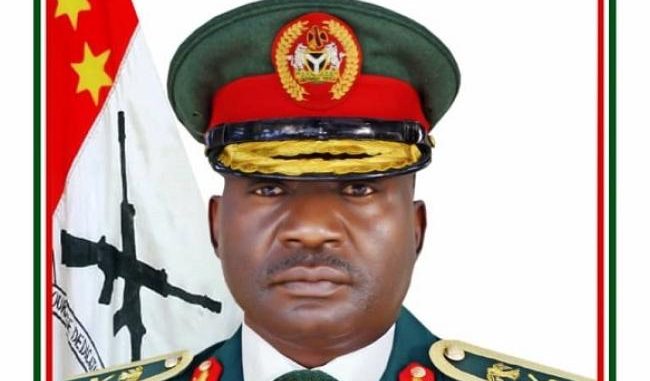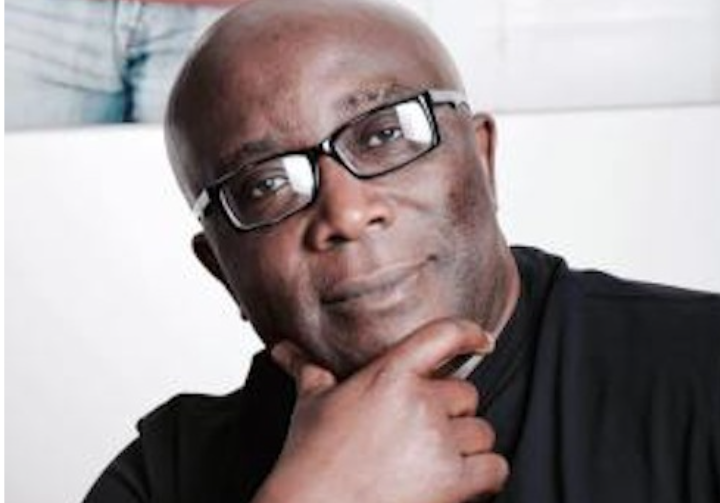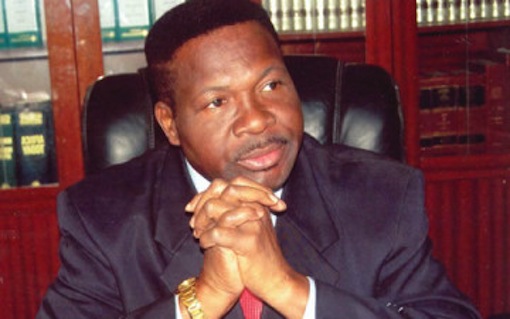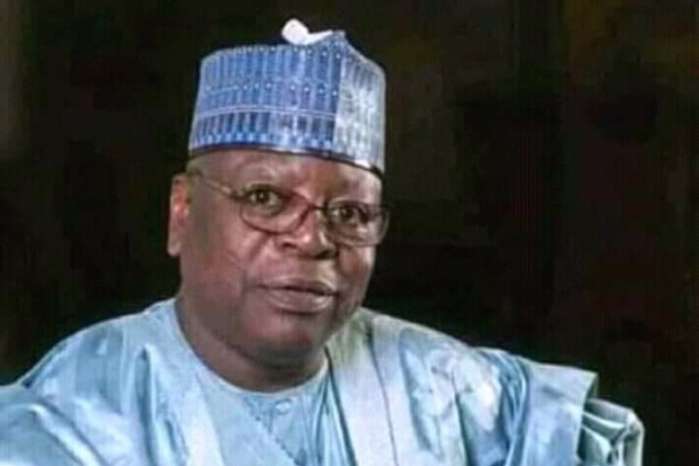In the dying months of the Buhari administration, an upsurge in terrorist activities in the Nigerian North East led to a resurgence of the debate as to whether Nigeria needed to engage foreign mercenaries in its war against jihadist terrorists in the country. The debate was not new.
It had also raged, somewhat differently, in the final months of the Goodluck Jonathan administration. It is in fact said that certain interests in the Jonathan national security apparatus clandestinely engaged some private military companies from South Africa to take on the ISWAP and Boko Haram elements. The hope then was that the input of the South African mercenaries would make a significant enough difference in the security situation in the North East to facilitate Jonathan’s victory in the then postponed presidential elections in 2015. Everything was thrown in including paying for arms in cash and airfreighting the dollar payments and the arms with aircraft sometimes belonging to known clergymen!
The debate in the final days of the Buhari presidency was somewhat different. It featured on the floor of the National Assembly briefly. This time around, the debate was being fueled by a lobby group operating from neighbouring Chad and Niger Republic. They were paid agents of the publicity wing of Russia’s Wagner Group of mercenaries seeking to expand its influence in the Sahel and West Africa. Hopefully, that debate has died a natural death. The new administration in Abuja needs to keep it in the morgue of national discourse without losing sight of its import for our national security in the months ahead.
The brief unexpected revolt in Russia two weekends ago may claim more casualties than Vladimir Putins’s grip on power in Moscow. The Wagner Mercenaries corporation, owned by Putin and his friend, Yevgeny Prigozyn, is on a roller coaster ride into untidy oblivion as well. But unknown to many, the Wagner Group was the propeller of the Kremlin’s influence on and threat to Africa’s precarious democracy. The imminent meltdown of the mercenary force is therefore also a clear danger to democracy in many African countries.
Ordinarily, developments in far away Russia should not be much of our business in these parts. Russia has not quite shown an overt interest in African affairs except in recent times with its isolation over the Ukraine war. For most African countries, relations with Russia have remained more of a nostalgic ideological remnant of the Cold War years. Except for South Africa and one or two others, Russia has remained more of diplomatic decoration than a consequential strategic ally. Somehow, however, both the Ukraine war and the sudden implosion of the Wagner Group of mercenaries have increased the relevance of Russia in Afrcia’s global perspective.
The Ukraine war has unsettled African economies by threatening grain supplies and unsettling energy prices and prospects. The Wagner Group which began as a rogue money making parastatal of the Kremlin became a major power player in a number of African countries. In addition to being contracted to do a major part of the work of the Russian military in Ukraine and elsewhere, it was used to branch out to troubled parts of the world to return profit and expand the influenced of the Kremlin. African countries remain hosts of the uncanny presence of the Wagner mercenaries even as the group itself comes undone by complications of power in Russia itself.
The Wagner implosion leaves more than 6,000 of its mercenaries already stationed in Africa literally decapitated from their Russian command and control center. The attempted revolt in Russia and the untidy meltdown of the Wagner Group have raised some questions: What is the plight of those African countries for whom the Wagner mercenaries have become a security stabilization force? In places where the Wagner force has been used by autocratic regimes to obstruct democratic forces, what are the prospects now that Wagner is endangered?
Until the attempted weekend revolt, the link between the Kremlin and the Wagner mercenaries was still hazy. The collapse of the revolt has exposed the extent and international meaning of the Wagner Group. As it turns out, Wagner is both an untidy business venture and an unusual non -state tool in the service of a rogue state. It was first a private military company owned Putin’s estranged hot dog merchant friend, Yevgeny Prigozym, himself a serial criminal and alumnus of major Russian prisons. It is not merely a mercenary fighting force. It is mostly a dangerous business manned by proven criminals using the force of sophisticated arms and a military camouflage to meddle in dangerous places around the world. Above all, it remained a curious arm of Russia’s defense infrastructure.
The Group is reportedly also in cahoots with cells of the Russian Mafia. In the raging Ukraine invasion, for instance, a contingent of 400 mercenaries from the Wagner Group were dispatched to infiltrate into Kyiv for the sole aim of assassinating President Zelensky. Ukrainian intelligence uncovered the plot and it has been frustrated so far. Undeterred, Moscow is reportedly in the process of increasing the Ukraine Wagner Group mercenary task force to 1000, to carry out various destabilization operations in the light of the frustration of the Russian mission in Ukraine.
In return, the Wagner forces got paid by the Kremlin as a defense contractor. Off shore, Wagner rewarded itself and its patron companies with cash and mineral concessions.
Nothing else throws Vladimir Putin’s uncanny reputation into better relief than the existence and uses of the Wagner Group. Here is Putin, the leader of a global power contender and counterpoise to the West. He presides over one of the largest and most equipped military forces in the world. Yet he co-established a state sponsored mercenary force and outsourced a major war of nationalist re-assertion to this private army.
Yet, the reality is that the Wagner Group was founded and has been run more like a parastatal of the Russian Defense and foreign affairs ministries. Unsurprisingly, it was none other than Russian foreign minister Sergey Lavarov who in the wake of the Wagner revolt immediately sprang into action to reassure all that the activities of the Wagner Group in Africa and elsewhere will proceed as before. Matters only took a dangerous turn when it seemed the Defense ministry and the military high command felt threatened by the growing powers of the Wagner mercenaries.
Putin may have doused the Wagner threat in Russia by chasing away his pal Prigozym into emergency holding exile in Belarus. He may have effectively neutralized the Wagner forces through an untidy mixture of demobilization, outright sack or mass export into exile. No one knows exactly what will become of the Wagner mess in Russia and Ukraine where they are holding captured ferritory.
But Wagner remains active and in business in a number of countries especially in Africa. The last roll call of Wagner presence in Africa includes Central African Republic, Libya, Mozambique, Sudan, Mali, Guinea, Chad and Burkina Faso. In all these African countries, the Wagner Group operates as a private military company engaged by endangered states and their presiding autocrats. They are used to bolster weak official military forces often against the threat of jihadist militants. More importantly, the group is engaged in the more lucrative security of remote mineral sites which are often under constant threats from non -state actors.
In the Central African Republic, the Wagner force is particularly entrenched. It is involved in state security, mineral exploitation and political manipulation. In addition to being a security force bolstering the decrepit local army, it has recruited locals from one of the contending ethnicities to further terrorize the opposition and institute a reign of terror marked by killings and repression of the opposition. Wagner is in addition involved in political propaganda to bolster its client autocrat in power. In return, its affiliate Russian companies are involved in massive exploitation of minerals especially gold which it massively evacuates to Russia.
It has been established that gold exports from Central African Republic and Mali in particular are supplying Russia with the gold reserves to frustrate and douse Western sanctions against Russia in the Ukraine war.
Mali presents another face of the entanglement of Wagner in Africa’s unfolding political quagmire. The military junta in the country recently chased away the French ambassador to the country. In quick response to an increasing reciprocal diplomatic nastiness, President Emmanuel Macron ordered the withdrawal of a French stabilization force of over 3500 from Mali. The French troops had in 2013 gone to save the government in Bamako from being toppled by Islamic jihadists advancing from its northern regions and poised to overrun the country. The French troops quickly neutralized the jihadist advance and saved Mali from becoming an Islamic fundamentalist state.
Quite significantly, the Bamako junta has quickly signed on a contingent of 1,000 Russian mercenaries to replace the withdrawing French troops. The Russian mercenaries came from the Wagner Group which enjoys the support and patronage of the Kremlin and sections of corporate Russia.
The Russian mercenaries in Mali are merely an expeditionary force tacitly supported by the Kremlin to probe a strategic opening in the West African region. With close links to Russian intelligence and big business, the Wagner Group mercenaries are out to explore new areas of strategic vulnerability and declining Western influence in troubled spots around the world.
In the short run, the Russian mercenaries are likely to neutralize the jihadist menace in Mali and wherever else they go in West Africa, making their services an attractive security option to more troubled countries. These would be countries from which the French may still withdraw or those with ineffective national security apparatus.
Through the mercenaries, Russia may however have a wider interest than instant cash payments and mineral concessions for their services. In return for securing vital mineral locations, they are known to have negotiated lucrative mineral prospecting rights and contracts for major Russian corporations.
If the Wagner venture becomes more lucrative in the years ahead, an ambitious and aggressive Moscow might see an opening to expand its strategic influence in West Africa if only to fill the gap being left by a major West European power, namely, France.
If what is happening in Mali is an indication of the direction of developments in West Africa’s French speaking states, the presence of Moscow inspired mercenaries and hordes of Chinese contractors and free lance minerals marauders in the region could herald a tectonic shift in the strategic character of the region. Russiana dn Chines players may be on their way to increased influence in parts of Africa.
French speaking countries bordering the Sahel have recently begun to witness a systematic reduction in French influence and support. Social and economic circumstances are worsening as France curtails its economic support for its erstwhile colonies. Islamic jihadist insurgents have recently ramped up pressure on these countries, squeezing their weakened security forces.
In turn, their fragile democratic governments are being systematically overthrown by ambitious military adventurists. In quick succession, Mali, Guinea, Burkina Faso and Chad have all recently witnessed military coups. In each case, the cocktail of justifications by coup makers have included the bad handling of jihadist insurgency and terrorist pressure by elected governments.
Russian presence and influence in Africa through the Wagner Group stands out for its peculiar nature. The Russian adventurers are not in Africa to fund and build infrastructure like the Chinese are doing. They are not out to replace Western powers like France and Britain on a civilizing mission. Nor are they in Africa to win converts to any recognizable ethos or culture. They are also not ambassadors of any code of governance behavior. Democracy is not nearly their business. You cannot give what you do not have at home.
On the contrary, the Russians are here primarily for business. The strategic goals of the Russian government are however tied to this fundamental primary economic exploitation objective. They are a primarily an extration force of mineral thieves, contract seekers and power adventurers. In return for stabilizing the security of their host countries against rampaging jihadists and other power adventurers, they get paid in cash or through mineral concessions. Yet they are a deliberate force of influence seeking on a global scale. Notably, Mr. Putin is not an agent for development or enlightenment unlike his Soviet Union predecessors that at least pretended to counter Western development propaganda. Putin is essentially an extractive power influencer.
As a military contractor, Wagner’s political interest is in securing the interests of the strong men who invite them into African countries. In almost all cases, these strong men are autocratic leaders who came to power at the expense of fledgling democratic administrations. They are either coup makers and junta leaders or unpopular politicians who need a foreign military force to elbow out their opponents by neutralizing the existing weak national military force.
The continued presence and influence of such a force cannot be in the interest of either Africa’s development or the future of democracy. As the future of the Wagner Group hangs on a balance in Russia itself, there is a challenge for the African Union and individual African states. The continued presence of mercenary forces like the Wagner Group and similar other rogue forces needs to be recognized as a threat to Africa’s quest for stability, genuine development and democracy in the years ahead. A continental stand on the role of mercenaries in Africa is urgently required.




